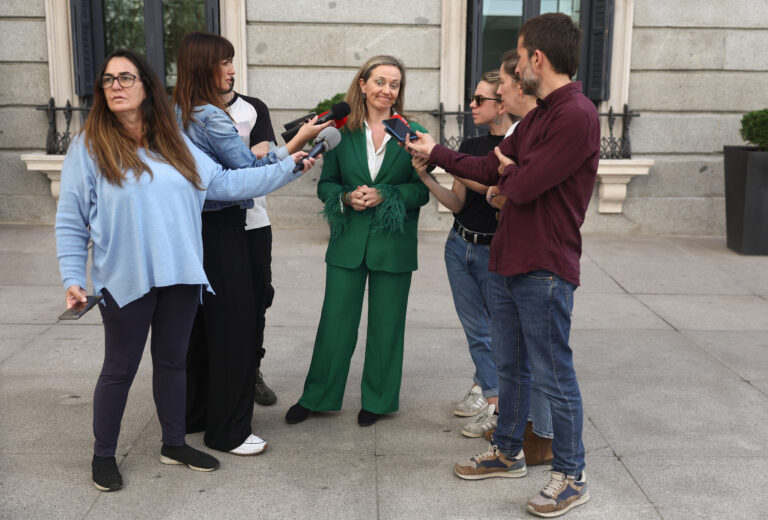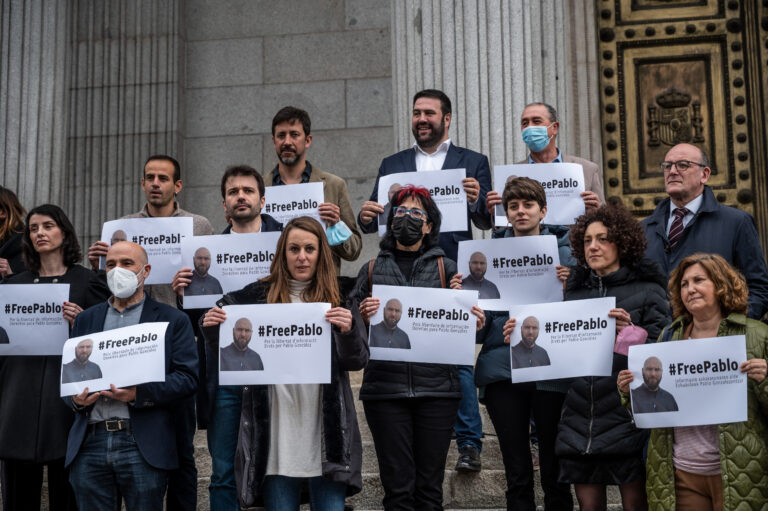The IFJ says the case is worrisome because the sentencing was based on the view that Internet journalism is not entitled to the same protection as journalism in other media.
(IFJ/IFEX) – 30 December 2009 – The International Federation of Journalists (IFJ) has strongly condemned a court verdict against two Spanish journalists, Daniel Anido, director of the private radio Cadena SER, belonging to the PRISA-EL PAIS media group, and Rodolfo Irago, news director for the same radio network.
The two men, who were charged with “revealing secrets”, have been condemned to suspended jail terms of a year and nine months and banned from working as journalists for the same period. They also face bills running into thousands of Euros to cover compensation costs.
“This is an outrageous decision,” said Aidan White, IFJ General Secretary. “That a court in a leading democracy can commit such a flagrant violation of press freedom is astonishing and deeply troubling.”
The IFJ says that what makes the case even more worrying is that the court has not questioned the truth of the report at the centre of the hearing, but has made its finding on the belief that Internet journalism is not entitled to the same protection as that published through traditional media.
The Cadena SER web site published in 2003 the list of alleged “irregular members” (non-confirmed by the party statutory bodies) of the conservative Popular Party (PP) in Villaviciosa de Odón, a suburb of Madrid, during an internal dispute inside the local PP related to a corruption case and a political scandal which involved the conservative leadership in the region.
“The distinction made by magistrate Ricardo Rodríguez Fernández between television, radio and the printing press and the Internet, in which he argues that online information is not entitled to the same protection as traditional media is both dangerous and absurd,” said White. “We shall support our Spanish affiliates and these journalists in their efforts to have this verdict overturned.”
The Federación de Asociaciones de Periodistas de España (FAPE), a Spanish affiliate of the IFJ, has protested against the “confusion” included in the worrying sentence. Other affiliates of the IFJ in Spain — the FSC-CCOO and FeSP — have condemned the verdict as “absurd” and “from another age.”
“Journalism in the modern world comes in various forms and through different platforms,” said White. “A magistrate who does not understand how the truth and the values of journalism remain immutable no matter the mode of transmission is not someone who can deliver justice in the information age. In the name of democracy and press freedom this decision needs to be reversed as soon as possible.”


